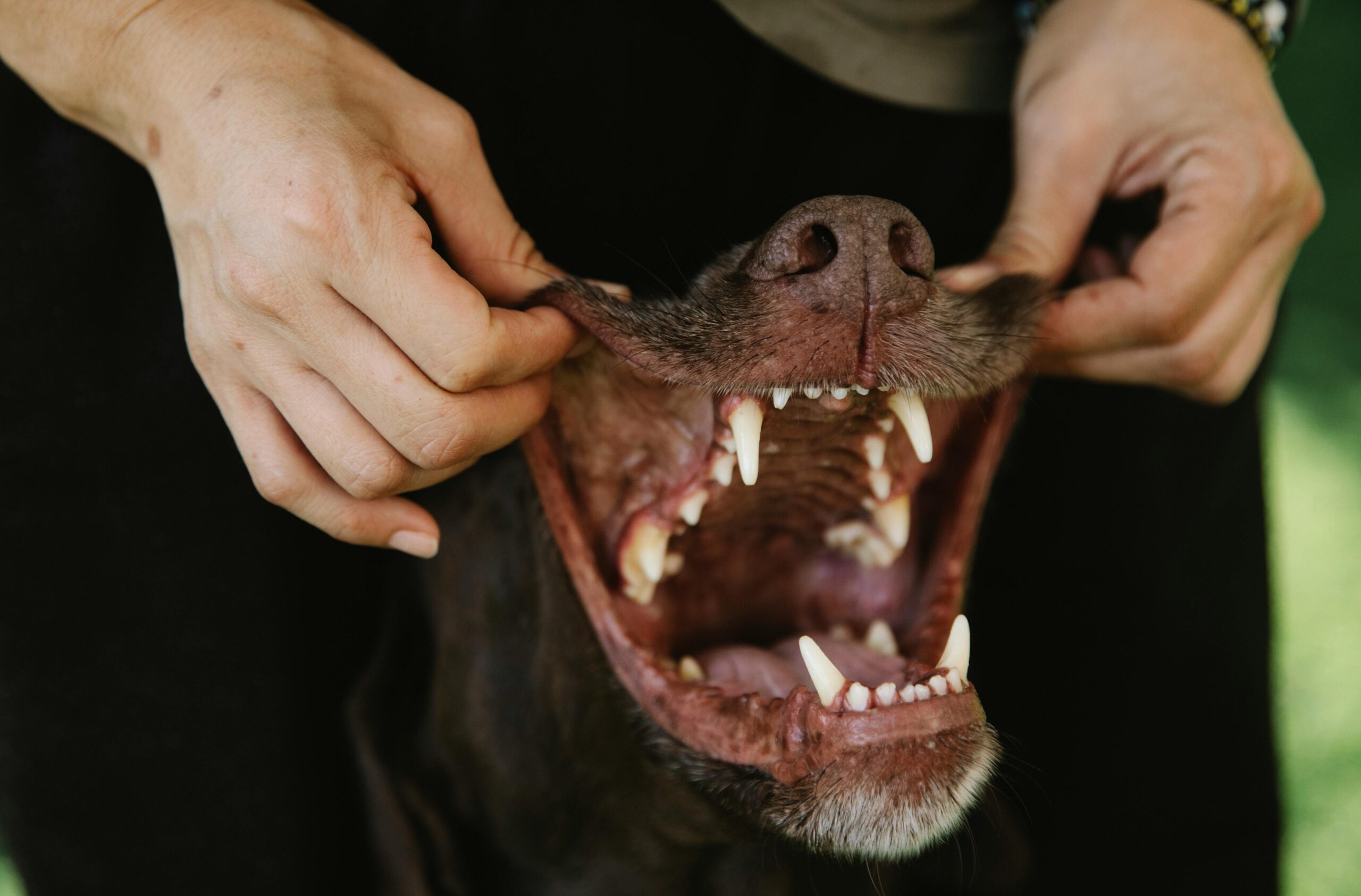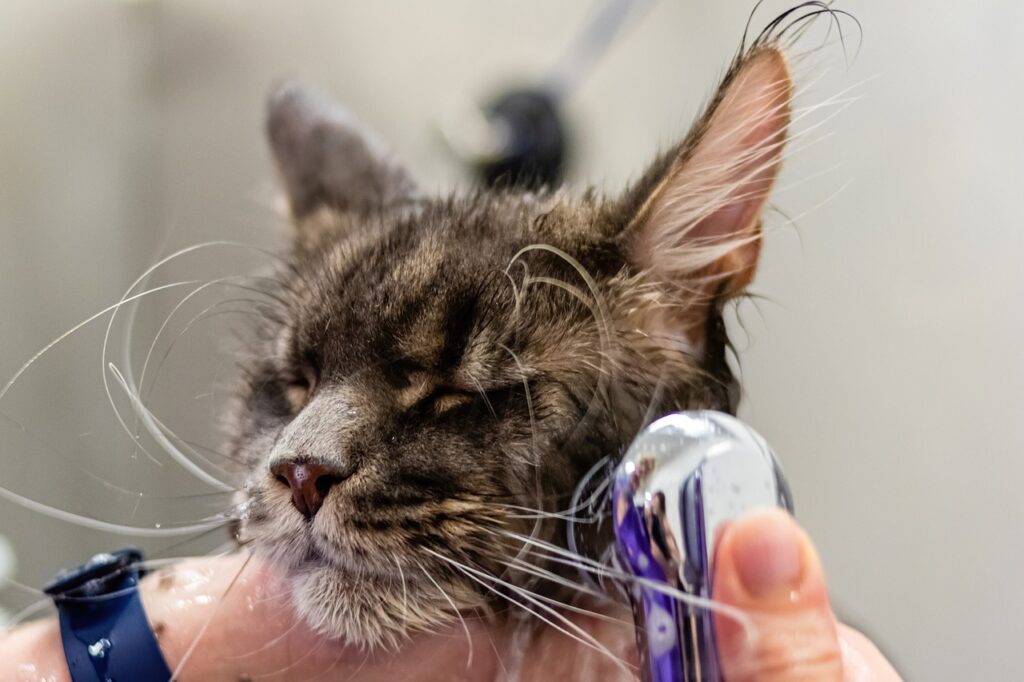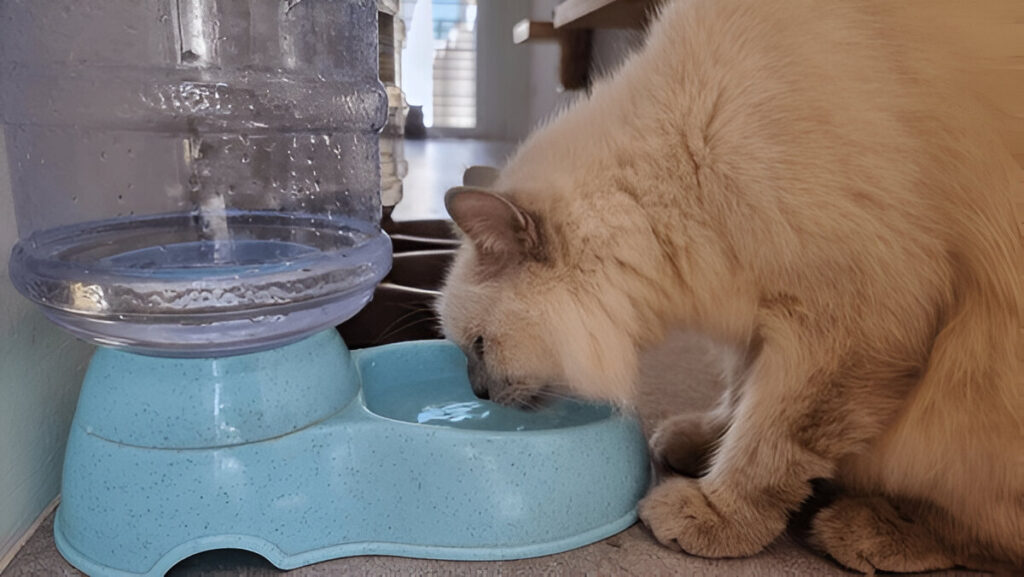Why Does My Dog Have Fish Breath?
The breath of a dog can sometimes have a very special smell and byfar most pet owners get worried about a fishy smell. A small amount of doggy breath is normal; however, a chronic fishy smell can indicate a health or dental problem.
In this article, we will take a closer look at some of the reasons behind fishy breath in dogs, the role of diet and oral hygiene, when to contact a vet, and how to treat the unpleasant smell so that your dog can be healthy for many years to come.
ntroduction Do Dogs Genuinely Have A Fishy Smell To Their Breath
Most pet owners know that their dog will have in intermittent dog breath that might be a little stinky but not cause for alarm. But if your dog has perpetual fish breath, it might set off alarm bells. Breath that smells of fish are rarely a benign problem and is likely to be a sign of an health concern.
Dog owners often notice dog smell in the form of bad breath, or canine halitosis, which has diverse causes, including fishy breath. The causes are many from poor oral health to more serious internal health problems.
Learning what can lead to this type of smell and how to treat or prevent it will help you decide how best to proceed with your pet.
Dog Breath Smells Like Fish — 6 Common Causes
If your dog has a fishy smell to its breath, here are a few common causes to think about. Although in most of the cases the reasons for bad breath are linked to poor oral hygiene, halitosis can also come from internal health problems.
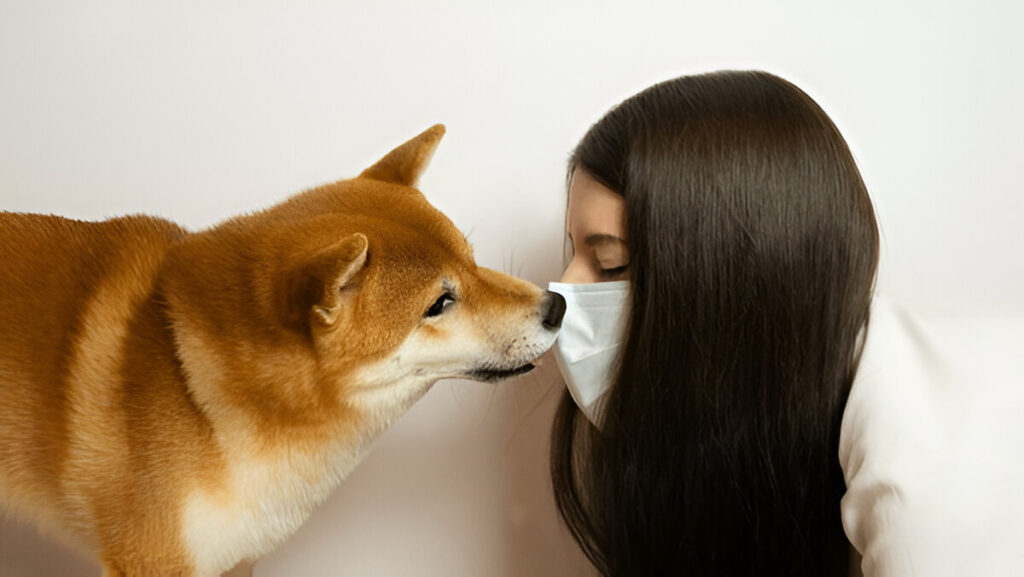
Potential Outweighs the Risk Dental Dissension and Gum Illness
Poor dental health is one of the most common causes of bad breath in dogs. It just takes plaque and tartar on your canine’s teeth for gum disorder (gingivitis) to take hold, and then worse situations like periodontal disease.
When bacteria digest food particles found in your dog’s mouth, sulfur compounds are released, leading to bad breath, which may sometimes be fishy breath in dogs.
Infections in the Mouth
Gums, teeth, and soft tissue in the mouth can become infected and this can contribute to fishy smelling breath as well. If gums are infected or the tooth is abscessed, pus can drain that has a specific odor.
Diet and Digestion Issues
The diet of your dog makes a huge difference to the smell of their breath. A diet consisting of fish-based foods or treats is another possible cause of fishy-smelling breath.
But if your dog eats fish AND it is starting to smell fishy when there is no fish in the diet, that is significant and likely an issue related to the GI tract. This means that bad digestion or a lazy stomach will make similar bad smells come out through the mouth.
Kidney Disease
Kidney disease is one of the more serious causes of fishy breath in dogs. The breath can also become affected when a dog suffers from kidney disease, as toxins build up in the bloodstream if the kidneys aren’t functioning correctly.
This can lead to a smell similar to that of fish or ammonia. The most common signs of kidney disease, besides having noticed blood in his urine at this time, were a history of polydipsia and polyuria, and weight loss.
Diabetes (Ketoacidosis)
Diabetes mellitus — The other reason dogs can briefly smell fishy from their mouth is diabetes, particularly diabetic ketoacidosis (DKA). This is when a pup’s blood makes large amounts of ketones because of a low amount of insulin.
A fruity or fishy smell is produced by the ketones, which you can frequently notice on a dog’s breath. DKA is a potentially life-threatening condition we might see in the vet clinic, where they require urgent veterinary care.
Liver Disease
Another medical condition that can also be a contributing factor for dogs to have stinky breath is liver issues. The liver helps to detoxify and if it is impaired then the toxins which build up can cause a fishy smell. Signs of liver disease in dogs can include vomiting, jaundice, and lack of appetite.
How Oral Health & Diet Impact Your Dogs Breath Smell
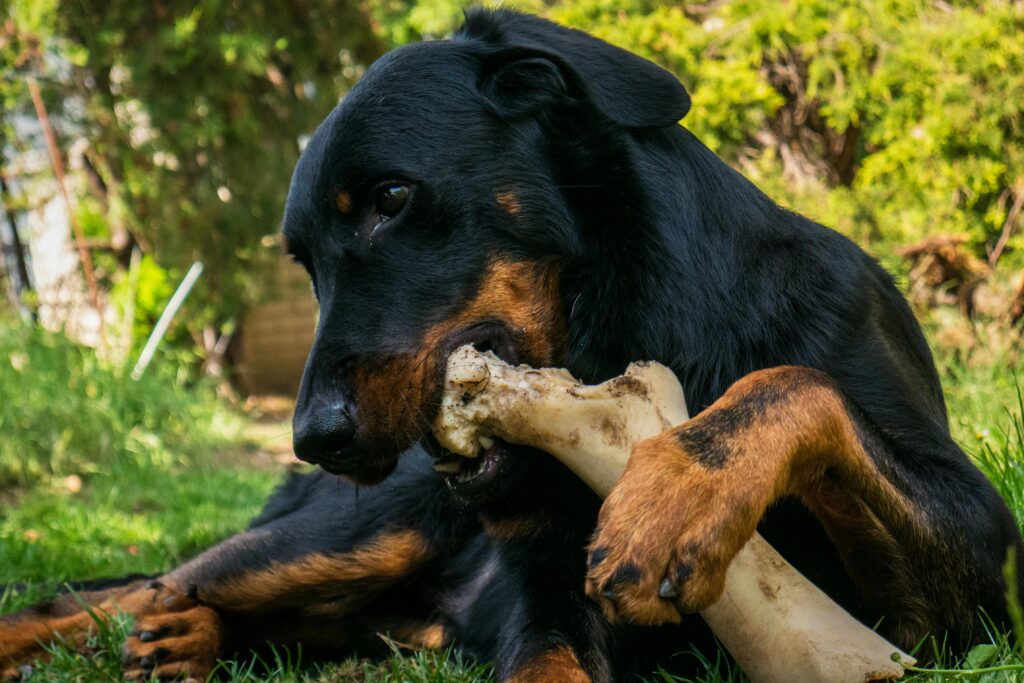
The most important aspect of dogs having bad breath is oral hygiene and diet. Aspects of bad breath can be worsened by neglecting oral care, certain aspects can be helped or worsen by a proper diet.
Dental Care for Dogs
It is important to keep your dog’s breath fresh with oral hygiene so that he or she needs no background music while on the go. Similar to humans, dogs require regular tooth brushing to remove plaque and prevent bad breath and gum disease. Plaque, when untreated, becomes tartar, and this can only be professionally removed by a vet.
To keep your dog’s mouth healthy, try regularly brushing with toothpaste made for dogs, or giving dental chews or toys that help dislodge plaque. Dogs with more serious dental problems should also have professional cleanings on a regular basis.
The Relationship Between Your Dog’s Diet and Breath
If your dog smells fishy, a poor diet may be the answer to their stinky breath. Feeding a vet recommended, high-quality balanced diet with ingredients suitable for your dog’s size, age or health needs is another way to maintain your dogs overall health as well as oral health.
The strong scent of fish oils and fats used in fish-based dog foods or treats may lead to a fishy odor. But if the fishy breath does not go away by stopping these food types, it could indicate an underlying health issue. You want to ensure the diet that you choose is balanced and appropriate for Your dog in general.
Pet Oral Care Products
If you have a little trouble getting into the toothbrush, there are plenty of other oral care products available to assist in freshening breath and controlling plaque accumulation. This includes things such as water additives, dental chews, and dog mouthwashes. While these products can help with your canine companion’s oral care, they can not replace routine brushing and vet visits.
What to Do if Your Dog’s Breath Seems Concerning
Whenever you find that your dog’s breath smells fishy consistently or with a combination of other symptoms expressing disease, be sure to consult with your veterinarian. These signs require a trip to the vet:
Increased thirst or urination: Could signify kidney disease or diabetes.
Losing weight or not eating: May indicate liver disease or diabetes.
Behavioral changes or lethargy: These may indicate an underlying health issue, such as kidney disease or an infection.
Difficulty eating: If you see your dog struggling to eat or avoiding food, it may be the sign of dental disease, or a more serious condition.
Your dog is subjected to blood tests, urinalysis, and X-rays or ultrasound if required to find the cause of your dog breath smelling fishy. While early diagnosis and treatment is vital for kidney disease, liver disease, or diabetes.
How To Keep Your Dog Breath Fresh-Preventative Measures
To help prevent fishy breath and maintain a clean mouth for your dog, here are a few steps that you can take.
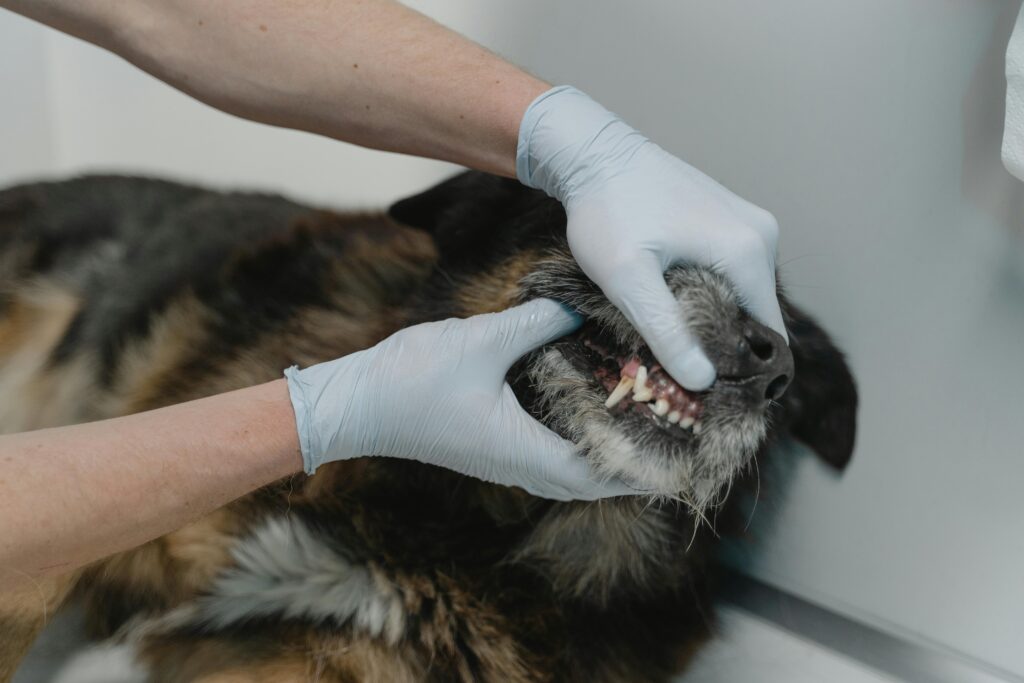
Regular Dental Checkups
Make a regular appointment with your vet for dental exams. Getting your teeth professionally cleaned regularly can minimize tartar build-up, as well as catch early signs of gum disease or an infection.
Daily Oral Care Routine
Brush your dog’s teeth regularly using a toothbrush and toothpaste that suits doggy needs. Brushing as little as several times a week rather than every day can help fend off bad breath, even if you lack the time to brush daily.
Healthy Diet Choices
A balanced diet — provide one suited for your dog’s stage of life and any health concerns he may have. Try restricting odorous treats (like fish-based treats) and provide dental chews or treats that promote oral health.
Hydration
Make sure that your dog always has fresh water. Staying hydrated also helps to remove the bacteria and food you have in your mouth, thus, preventing plaque formation.
Avoid Human Foods
Some human foods can irritate a dog’s digestive system and cause bad breath. Sugary or fatty fish-rich food may be the cause of this odor.
Final Thoughts:
Keeping Your Pup’s Teeth Clean For Life
Halitosis in dogs can be due to dental disease, dietary habits or can be associated with systemic diseases such as kidney disease or diabetes.
This means dog owners should always keep an eye on their pets’ oral health, maintain proper hygiene, and look out for any potential health issues. Fortunately, most causes of bad breath can be treated with good care, allowing your dog to live a long healthy life.
If your canine has fishy breath, begin now for taking him to a vet if necessary. Hopefully with routine dental care, a high-quality diet, and regular vet visits, your pup can maintain fresh breath and enjoy a healthy life for years to come.
Yuns Legdm is a passionate advocate for pet care and the founder of this website, dedicated to providing valuable information for fellow pet lovers and veterinary professionals worldwide. With a deep love for animals, Yuns created this platform to connect passionate pet owners with expert insights from veterinarians around the globe.
This website grows with you—the passionate pet owners and veterinary experts—creating a trusted space where knowledge, experience, and love for animals come together. Whether you’re seeking advice on pet health, nutrition, or general well-being, this platform is here to support you on your journey of responsible and loving pet care.

